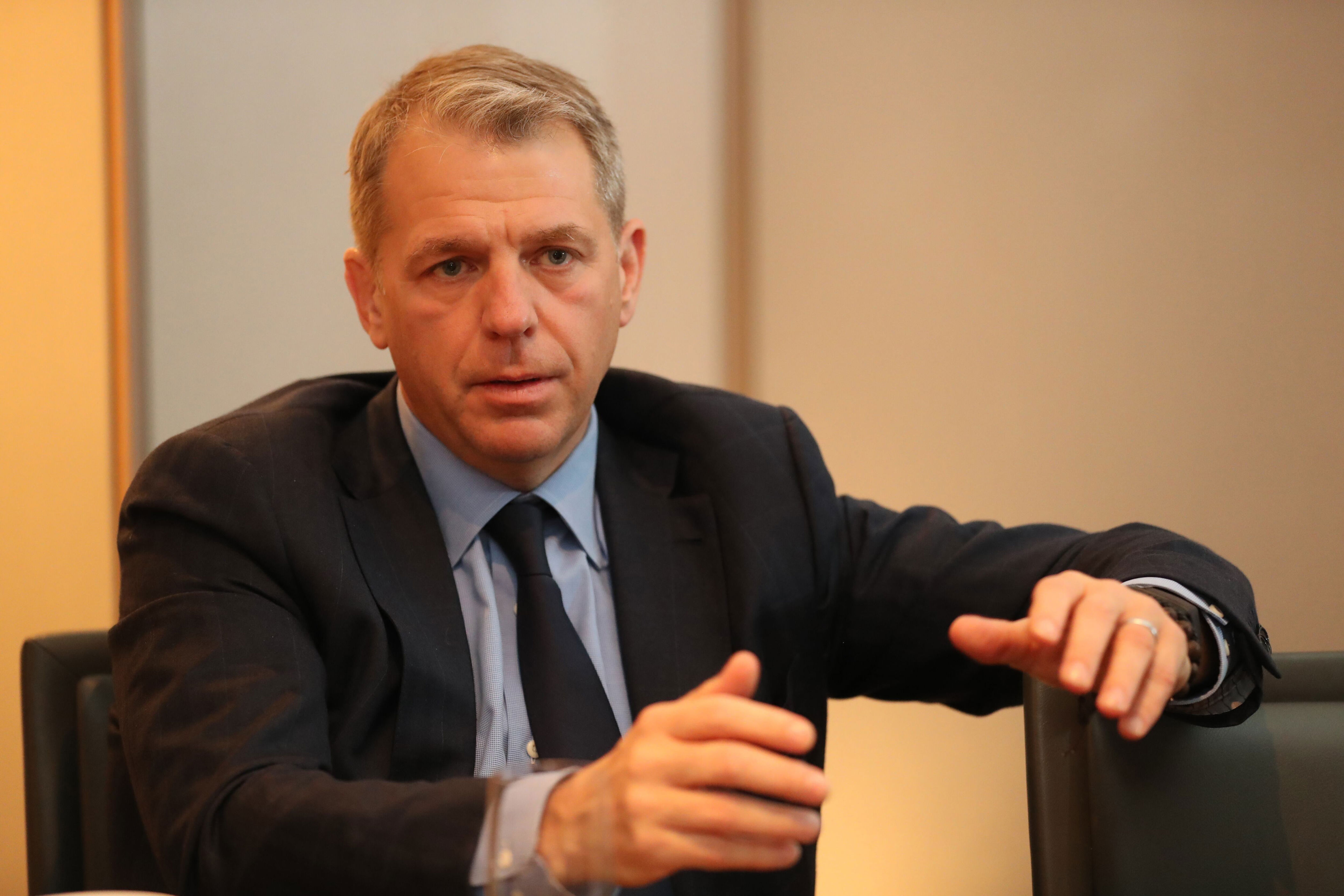
While Todd Boehly, the co-founder and chairman of Eldridge Industries, might not be well-known in South Korea, he wields significant power across international sporting events, media landscapes, and financial sectors. He owns prominent teams such as MLB's Los Angeles Dodgers, NBA's Los Angeles Lakers, and England's Premier League team Chelsea FC—organizations featuring notable athletes including Shohei Ohtani and LeBron James. Additionally, Boehly has substantial involvement in various aspects of media and entertainment through assets like Billboard, Variety, Rolling Stone, and the Golden Globes.
Eldridge Industries, established by Boehly in 2015, comprises more than 100 portfolio firms spanning sectors such as sports, entertainment, insurance, tech, consumer products, real estate, and asset management. Following his attendance at the Major League Baseball opening game in Tokyo from March 18-19, Boehly proceeded to South Korea where he granted his inaugural interview with local press. On March 21, he spoke with ChosunBiz in Seoul.

Boehly mentioned that the unparalleled enthusiasm generated from viewing live sporting events is what motivates his interest in investing in this sector. He adopts a simple strategy: create a robust, victorious squad that attracts fans consistently, and the monetary gains will naturally ensue. This leads to a continuous loop involving significant funding, team achievements, increasing fan backing, and escalating team worth.
He additionally disclosed his increasing fascination with K-pop as a significant driver in worldwide entertainment. Looking back at his investments, he described investing in Pizza Hut as a disappointing misstep and acquiring Shohei Ohtani as the most profitable choice.
Here is the complete Q&A session with Boehly.
What was your arrival date for South Korea?
I landed on the evening of March 19, just following the conclusion of the MLB Tokyo Series. In the last couple of days, I've had meetings with leaders from prominent businesses, retirement funds, insurance firms, record labels, and individuals with extremely high net worths. Once I conclude my engagements in Seoul, I am set to travel to Hong Kong and Singapore.
Are you looking into business prospects in Asia?
We aim to identify the prime opportunities for Eldridge. Back in January, Eldridge Industries introduced Eldridge, an entity specializing in asset management and insurance holdings, overseeing approximately $72 billion in managed assets. This organization comprises two main segments: Eldridge Capital Management, concentrating on areas such as corporate credit, structured credit, general partner services, and sports and entertainment; and Eldridge Wealth Solutions, built around its insurance firms—Security Benefit and Everly Life.
We are constantly looking for enduring alliances with businesses globally, encompassing those based in South Korea. Our journey through Asia, beginning with the Tokyo Series events, is aimed at broadening and strengthening our commercial connections within this area."
When discussing the Tokyo Series, one can’t help but recall last year’s MLB Seoul Series. What were the similarities and differences between these two events?
Each of these experiences stood out uniquely, making direct comparisons challenging. Having players like Ohtani, Yamamoto, and Sasaki on the LA Dodgers elevated the atmosphere in Japan significantly, particularly when Ohtani achieved his historic 50-50 season and led us to win the World Series. Meanwhile, my time in Seoul was remarkable as well, serving as an essential foundation for future endeavors akin to those experienced in Tokyo.
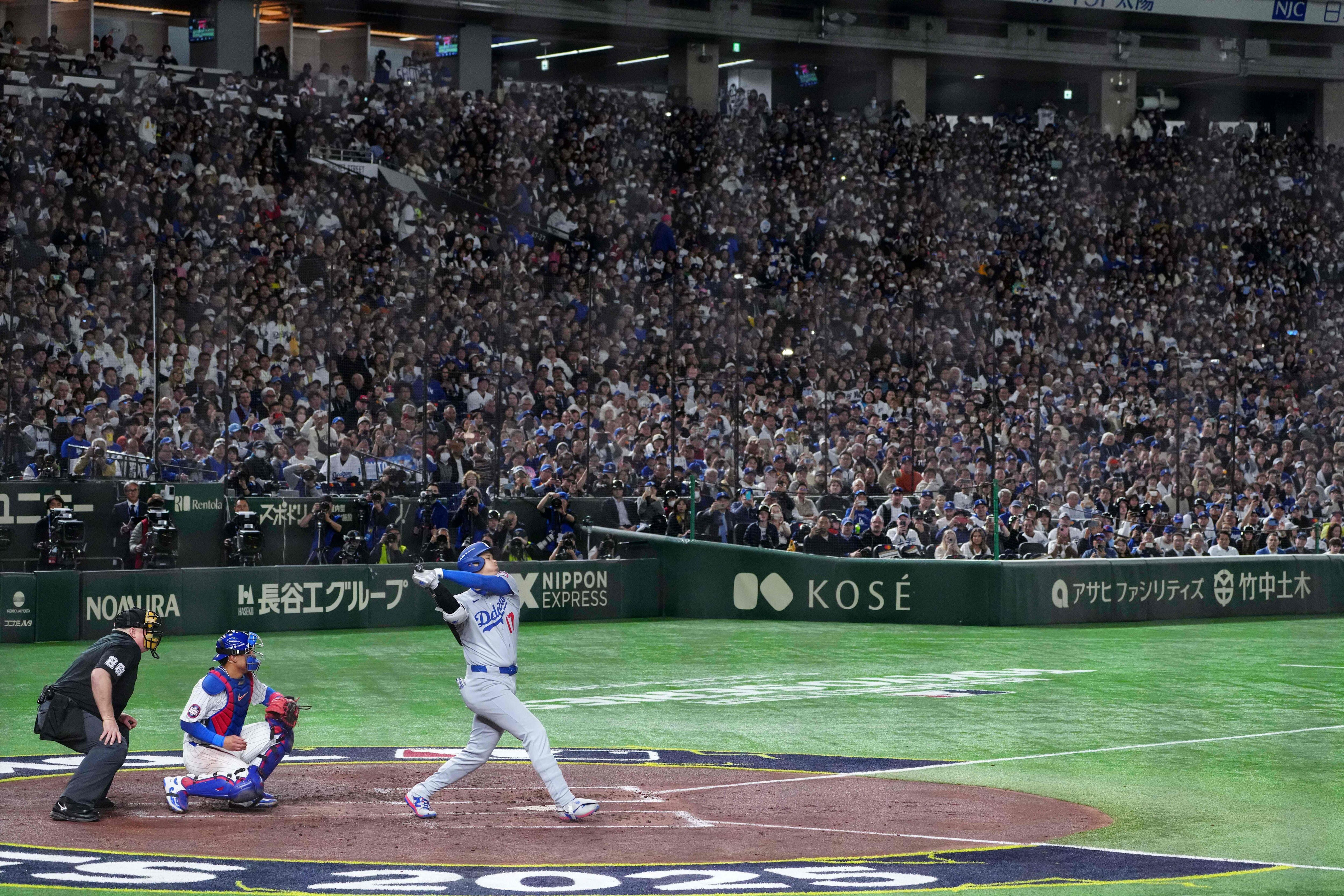
As the owner of both the Dodgers and the Lakers, as well as Chelsea FC, what motivates your investments in these sports teams?
Sport franchises operate at the crossroads of topics that Eldridge typically emphasizes—in media, property development, and intellectual property. Investing in sports stands out as distinct due to the limited availability of sport teams; it’s an uncommon occasion when one becomes available for purchase.
When considering a sports team, the initial aspect one examines is the robustness of its fan base. These supporters are deeply dedicated to seeing their team succeed. The fusion of fervent fans and a winning mentality generates immense enthusiasm. Live sporting events stand out as the sole occasions where individuals prioritize adjusting their schedules accordingly. From both an investment and ownership perspective, engaging with sports provides intellectual stimulation and instills a sense of humility. This drives me daily to perform my utmost, ensuring competent personnel are appointed, establishing solid foundations, and allowing them to flourish autonomously.
It seems that putting money into sports is fundamentally about betting on fan enthusiasm.
Supporters form the backbone of every team. As proprietors, it’s essential to constantly consider their viewpoint. Our aim is continually expanding our methods for direct interaction with fans domestically as well as internationally. Currently, we're only beginning to explore the potential for delivering innovative and engaging experiences to them. Discussions include strategies for making sports accessible to broader audiences via avenues such as partial ownership stakes or participation in funds.
Are there any fundamental guidelines you follow when investing in sports?
The cornerstone of fan engagement lies in 'success.' Above all else, constructing an exceptionally robust and competitive squad capable of prevailing now and sustaining victory into the future is paramount. Our strategy has enabled us to assemble groups with a significant likelihood of remaining intact over extended periods. This preference aligns with my inclination towards longer contract terms, like the decade-long agreement signed with Ohtani. Similarly, Luka Dončić's transition from the Dallas Mavericks to the Los Angeles Lakers embodies this forward-thinking approach. As a premier international brand, not just within the U.S., but globally, the Lakers boast a storied legacy of triumph. Luka represents a key element in carrying out this enduring vision.
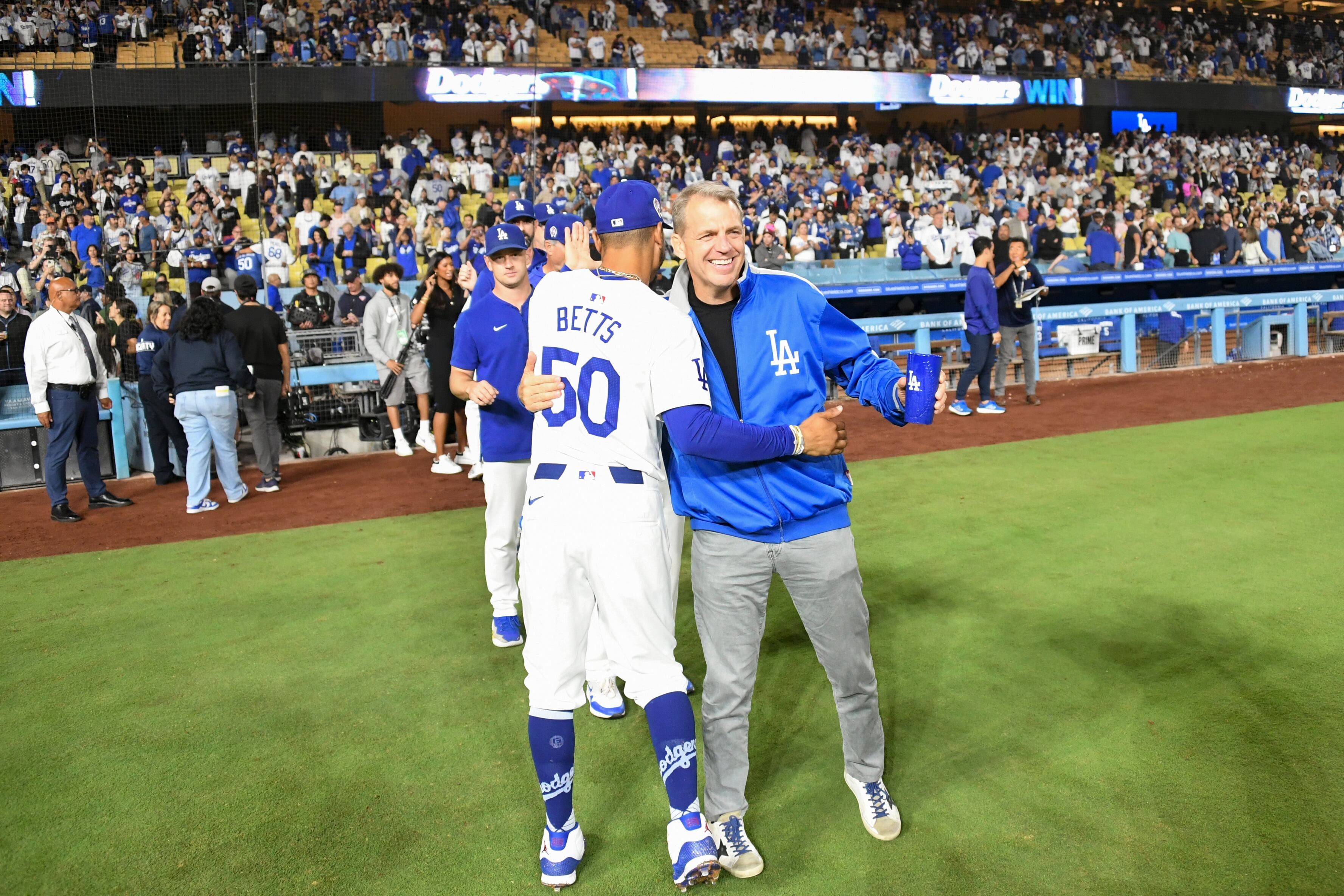
It ultimately boils down to profit margins.
Absolutely. When you assemble a successful squad, triumph comes as a natural consequence. Every Major League Baseball (MLB) franchise secures its individual broadcasting agreement, and Los Angeles stands as the globe’s second biggest media marketplace. Our team’s broadcast rights were due for an update one year post our acquisition. We believed that folks weren’t fully valuing the broadcasting potential tied into this upcoming renegotiation, plus we were confident about our fan base supporting the Dodgers.
In May 2012, Todd Boehly joined forces with Mark Walter from Guggenheim Baseball Management, as well as Magic Johnson, Peter Guber, Stan Kasten, and Robert Patton, to purchase the Los Angeles Dodgers for $2.15 billion—a record-breaking amount for a sporting club at that time. Expecting a significant increase in the worth of sports broadcasting rights, they inked a 25-year agreement with Time Warner Cable, ensuring consistent revenue streams for the organization since then.
Observe the impact following the renewal. The 2024 MLB World Tour: Seoul Series attracted an average of 18.7 million viewers and set a record as the highest-viewed MLB game in Japan—despite being hosted in South Korea. This year’s Tokyo Series surpassed 25 million viewers. Consequently, we anticipate that the Dodgers could be the inaugural MLB team to achieve more than $1 billion (approximately 1.46 trillion won) in yearly earnings.
When you took over Chelsea F.C. three years ago, there were criticisms that your strategy was overly centered on business matters.
Our investment principles remain unchanged. We seek well-aligned, competent groups with a shared vision. When we brought in Romelu Lukaku after he was initially signed by the former owner, Roman Abramovich, there were many discussions. However, his acquisition did not fit our plan. In essence, our approach began from the moment we took over at Chelsea Football Club. If you examine the players we've recruited since then, most have typically been younger talents committed to longer-term agreements, diverging from the strategies employed previously.
In what ways do the sports markets in the United Kingdom and the United States vary from each other?
"There’s an adage in the UK suggesting you're thrice as likely to divorce than switch allegiance between football clubs, highlighting just how profound this loyalty goes. Football across Europe is fiercely competitive—where one misstep could spell disaster, each score carrying the same emotional impact as a game-deciding home run in baseball. Additionally, there are distinctions in venue utilization practices. When we observe American sports culture, athletics have evolved into forms of entertainment where the focal point often revolves around the stadium or arena. These sporting facilities in America are primarily constructed with entertainment purposes in mind. Conversely, globally, stadia tend to serve more functional roles rather than being centers for amusement. Hence, I foresee significant opportunities emerging worldwide concerning stadium development. In my view, within the approaching few decades, substantial investments will surely pour into enhancing these infrastructures.”
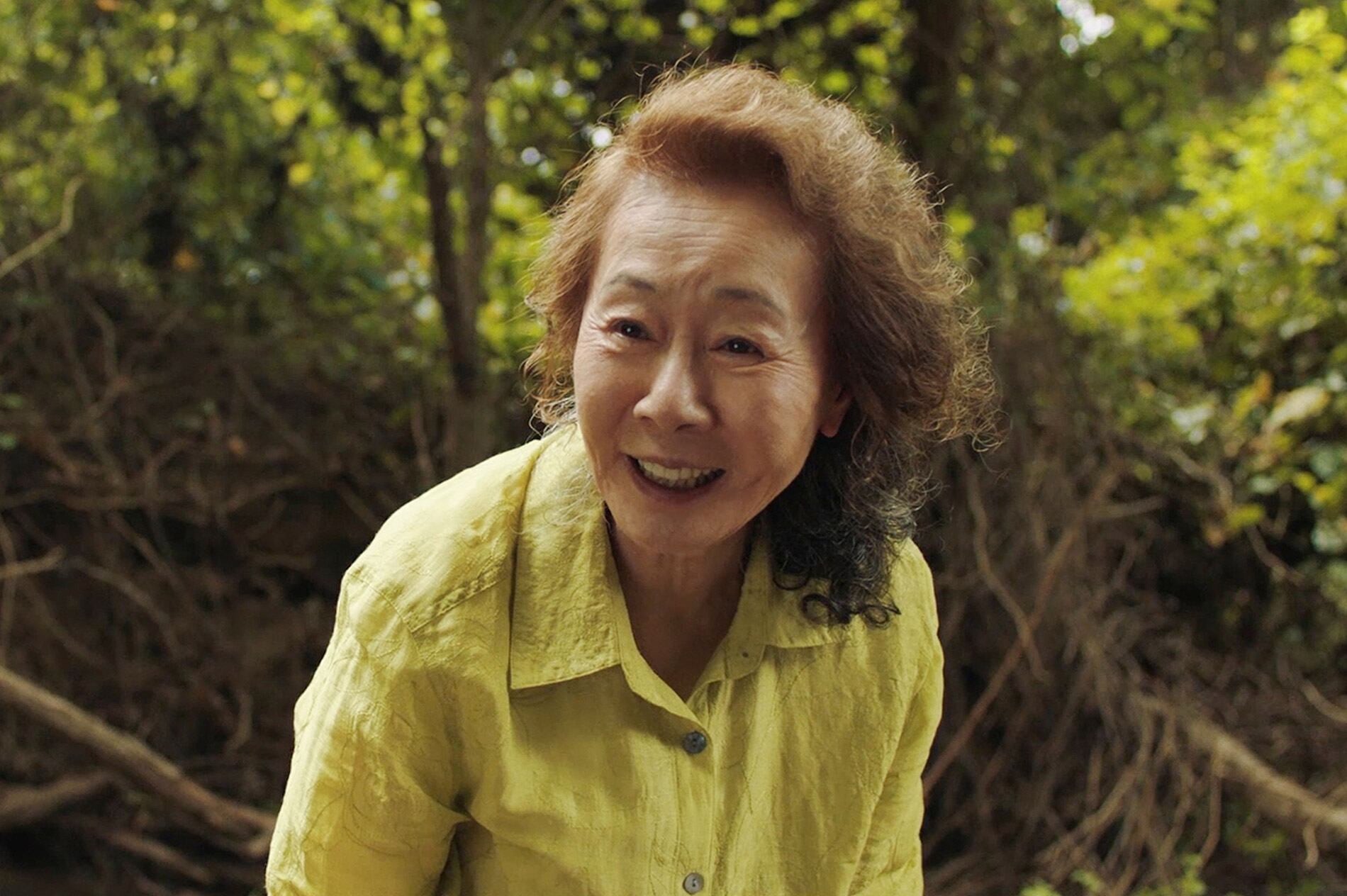
What regarding entertainment? Are there any investment opportunities well-known to Korean viewers?
A24, our international entertainment company, has collaborated with numerous Korean actors and directors to produce several memorable films and television series. Minari received six Oscar nomination nods, which marked the first instance of a Korean actor [Youn Yuh-jong] winning an Academy Award for Best Supporting Actress. Beef , which was released by Netflix, received eight Emmy awards and three Golden Globes. The announcement for the second season of Beef was made last year, and we're incredibly excited for what’s coming next."
What is your opinion on investing in K-pop from a financial standpoint?
We've witnessed directly the global phenomenon of K-pop. These groups have successfully established strong brands and drawn in fresh fan bases. We believe it's an expanding influence worldwide, which we have been closely observing.
Diversifying your investments across various sectors certainly makes fostering strong partnerships particularly crucial.
We collaborate with and back exceptional management teams who have demonstrated their capability to expand operations. Our role isn’t to master every domain—hence, we rely on our top-notch management teams for expertise. Building strong relationships matters greatly to us.
Is there any collaboration that particularly catches your attention?
In 2012, we joined forces with Daniel Katz to launch A24. Previously, Daniel worked alongside us at Guggenheim where he cultivated a financial mindset focused on the studio industry, achieving notable success along the way. At A24, Daniel brought this fiscal approach to filmmaking and television production, balancing an appreciation for the worth and prospects of intellectual property against our investment levels and associated risks.
We collaborated with Jay Penske by adding Billboard and The Hollywood Reporter to PME (Penske Media Eldridge), along with Variety and Rolling Stone. Under Jay’s leadership and his team's effort, these well-known brands have seen significant digital growth and development. Most recently, we teamed up with him again to acquire the Golden Globes, which resulted in a successful event featuring Nikki Glasper earlier this year."
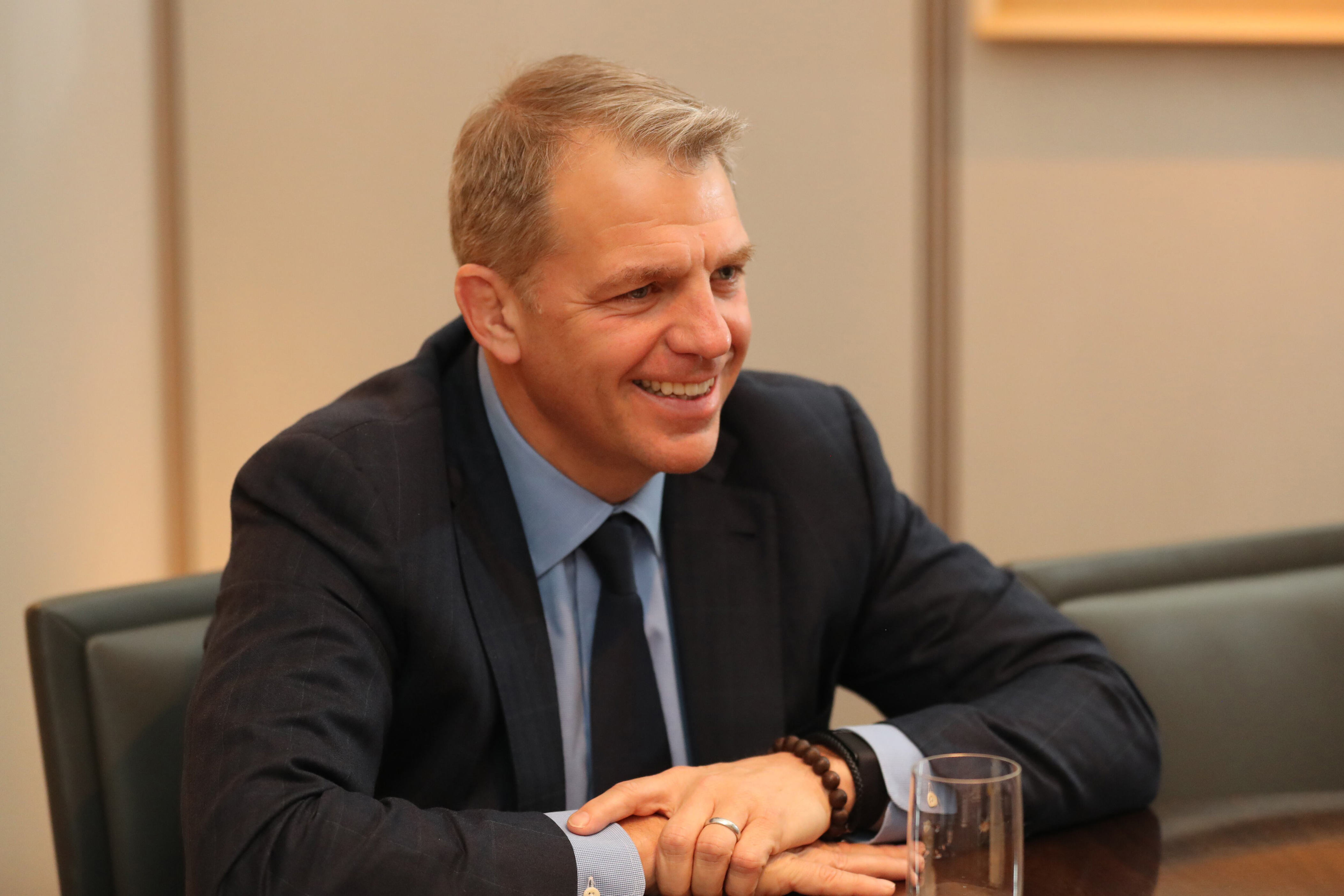
It appears your career is full of achievements. Were there any instances where investments didn't pan out as expected?
I believe the investment in Pizza Hut stands out as an example that didn't pan out. Several factors contributed, but what became evident is the importance of controlling the intellectual property (IP). In this case, we weren't directly managing the IP; instead, we relied on alignment with its owners. Unfortunately, that collaboration did not materialize as expected. Therefore, we've become steadfast about owning all intellectual property when dealing with any brand.
Were there any individual setbacks that influenced who you are today?
I used to be a wrestler, and I once failed to make weight. To this very day, I often reflect on that moment because I felt like I disappointed my team. It taught me significant lessons about being committed both to myself and those around me. Wrestling leaves no room for hiding; everything depends on you. This made it feel like an entrepreneurial journey that significantly shaped who I am today.
What’s your ultimate goal?
Ever since Eldridge Industries was established in 2015, we've maintained an annual growth rate averaging around 20%. Our aim is to sustain this expansion and develop enterprises that endure over time. We consistently seek out ventures that challenge us mentally, followed by pinpointing issues and addressing them head-on. As our connections broaden, discovering engaging opportunities appears to become increasingly simpler. It has come to light that individuals appreciate gaining entry into our distinctive network along with the prospects it unlocks, desiring inclusion within an environment designed to streamline their work and endeavors.
One last lighting round—what's your take on who the top player you've ever recruited is?
It’s difficult to choose between them, but Shohei Ohtani has clearly emerged as arguably the greatest player ever. The ability to witness someone excelling at hitting, running, and fielding is truly remarkable. We’ve always believed that if necessary, he could step up and play centerfield due to his immense talent. Moreover, his pitching skills add an extra layer of excellence. Having an athlete who ranks among the top five hitters globally and simultaneously qualifies for the elite group of top-five pitchers in the world is quite extraordinary.
What do you think about Kim Hye-song joining the Dodgers this season?
We're incredibly thrilled that he's now part of our team. We have great faith in his potential for the future. Of course, we've had Hyun-jin Ryu on board for quite some time, which gave us positive experiences both with Park and Ryu. Therefore, I believe we're enthusiastic about seizing this chance to keep nurturing talent within our squad. That's what excites us most at present.

Our website uses cookies to improve your experience. Learn more